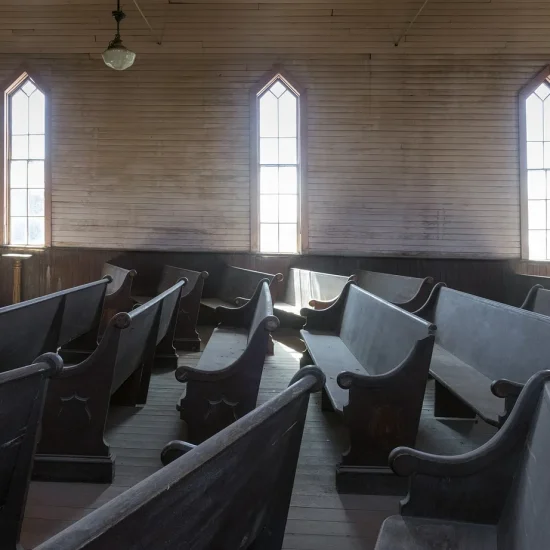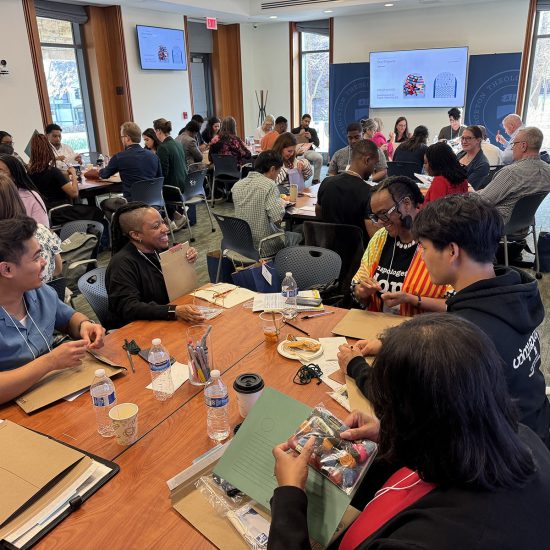By Vicki Brown
Associated Baptist Press
DALLAS — When the nice young couple presenting themselves for membership in your church is shacking up, how should the congregation respond?
Churches likely will face this and other tough questions as society’s definition of family continues to evolve.
“This isn’t the church our parents grew up in,” said Philip Washburn, pastor of Park Central Baptist Church in Dallas. “If we believe ‘come all who are weary and heavy-laden,’ we must love people, not turn them away. A lot of the couples [in non-traditional lifestyles] are couples who have grown up in the church.”
Washburn said he focuses on developing relationships first. Although no couple living together has yet sought to join Park Central, he is working with individuals in the community about the issue.
Michael Tutterow, senior pastor of Atlanta’s Wieuca Road Baptist Church, agreed churches must build relationships to help people first find faith and then to grow.
“We open our membership to anyone. … We start with where they are and help them,” Tutterow explained. “We take the stand of grace, something our entire staff shares.
“Trying to determine who’s at fault isn’t productive. We take the ‘now what’ approach: [Since] this has happened, now what?”
Wieuca Road concentrates on accepting individuals, regardless of the issues they face. “Acceptance is not the same thing as condoning. But if you provide the acceptance, there is room to grow,” Tutterow said. “If you point fingers, people are more likely to walk away.
“I would rather err on the side of acceptance. … People grow with grace. I’ve never seen anyone grow under legalism. … Why would people want to go to a church that adds more burdens?”
The church accepts unmarried couples and tries to get them into groups that model healthy relationships, Tutterow said.
Travis McIntosh, pastor of Beverly Park Baptist Church in Seattle, stressed that people must be made aware of biblical teaching and that some moral standards must be met before individuals are accepted for church membership.
When an unmarried, cohabitating couple who had been attending the church inquired about joining, McIntosh emphasized how glad the congregation was with their presence. However, they could not join unless they married or changed their living arrangements.
Although Park Central would love and nurture an unmarried couple, it’s likely the pair would not be able to join until they settled the cohabitation issue, Washburn explained.
“We can’t back down on who we are,” the pastor said. “But we’ve got to love them with the love that is Christ-based, not human-based.”
Unmarried couples who live together do not present the only challenge to churches. Divorce has been a growing part of American society for decades, and churches still struggle with the issues divorce creates.
Wieuca Road has relied on counseling to assist couples headed to separation and divorce. This fall the church will begin using DivorceCare, a recovery and support program that uses seminars and support groups.
McIntosh believes the church, particularly pastors, must be proactive, stepping in when they become aware of relationship problems.
“It’s the church’s responsibility to help the family stay together,” he said. “If the church lets them down in this area, how can it be trusted in other areas?”
What should churches do when husband and wife divorce and both want to remain members of the same church? People develop strong connections within their congregations, either through family ties or friendships, and often are reluctant to walk away from that support.
Usually, one spouse chooses to leave. But when both decide to stay, larger churches, such as Wieuca Road, have the advantage of size to mitigate possible tension between the former spouses.
A medium-sized or small church may have to intervene actively. Washburn said he generally works through the congregation’s deacons to be the buffer between the couple, particularly when former spouses are involved in the same ministries.
“A church needs more than just the pastor to work with the situation,” he said.
Tension can increase when both former spouses remain in a congregation, especially in a small church. McIntosh prefers that one finds another church home.
“I would let the spouse at fault know he should find another church,” he said.
Walter Coplen, a family counselor with Coplen, Wright and Associates in Columbia, Mo., said churches must focus on relationship building and sensitivity when ministering to non-traditional couples, single parents and their children. Don’t be afraid, he said, to ask people what they need and how the church can help.






